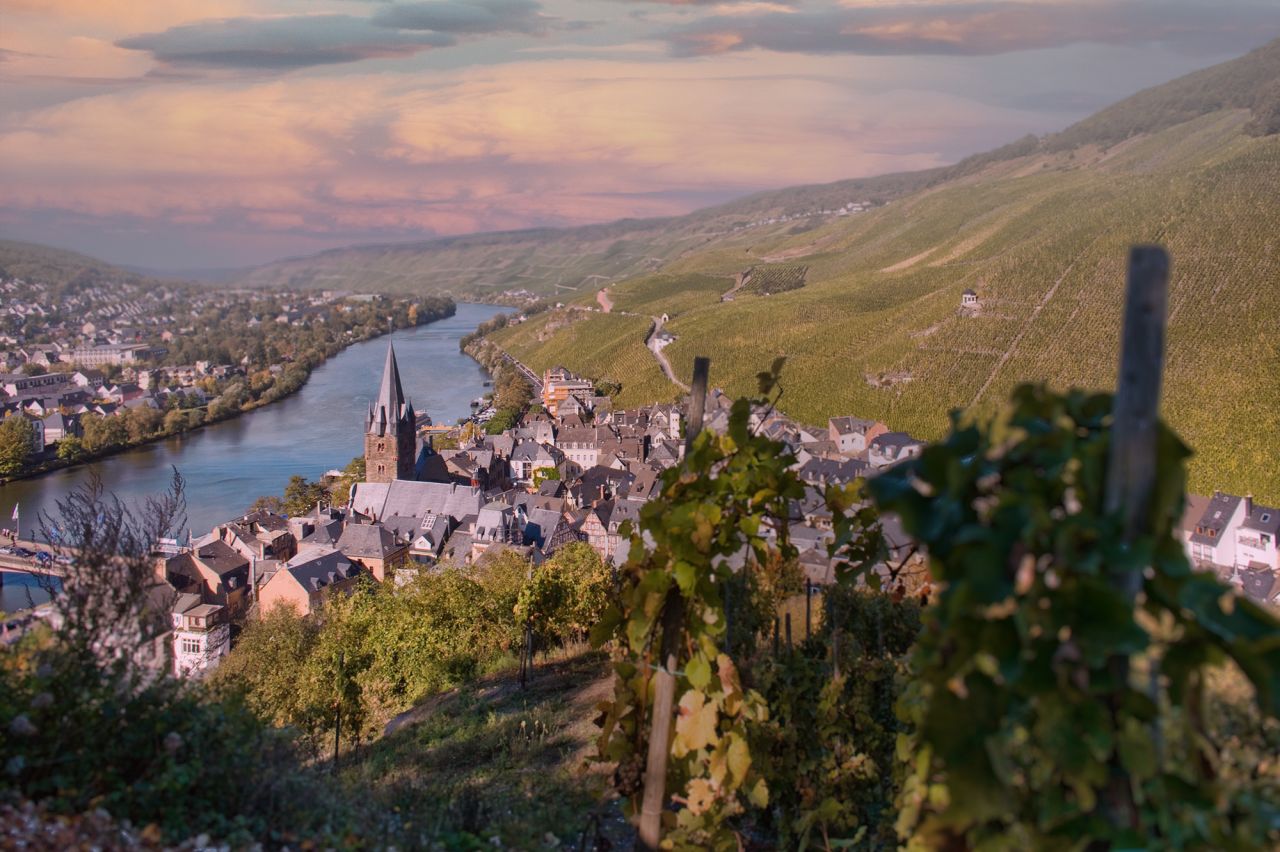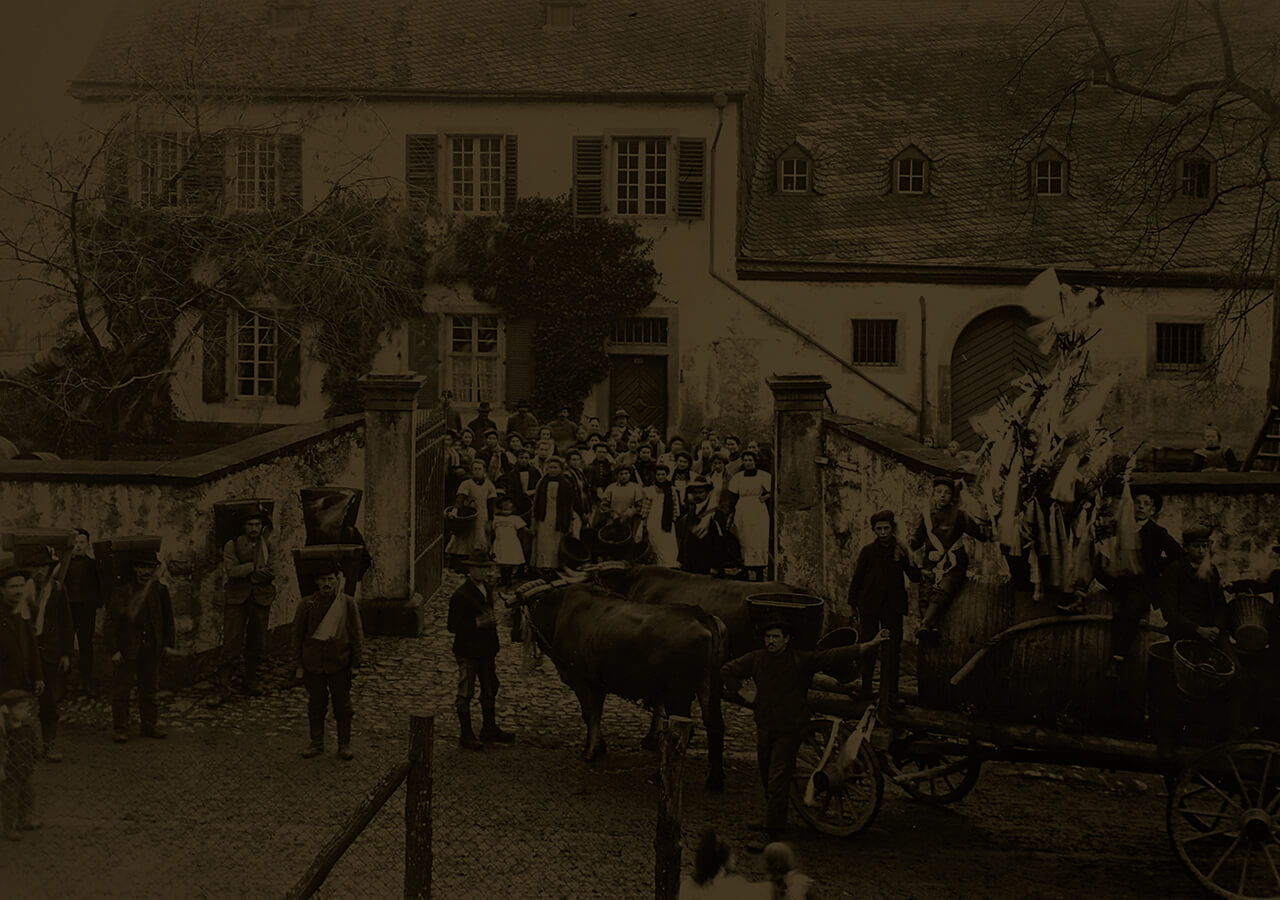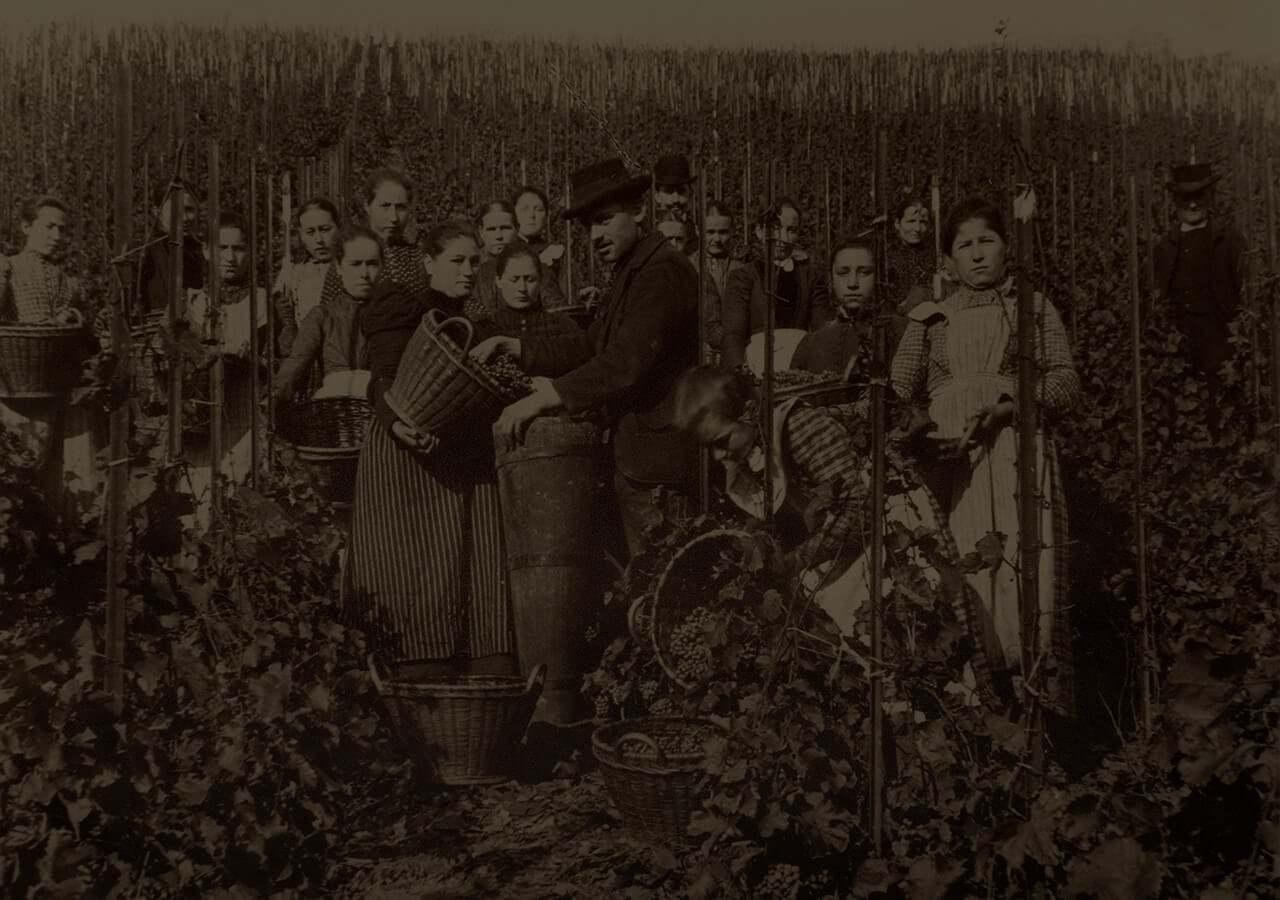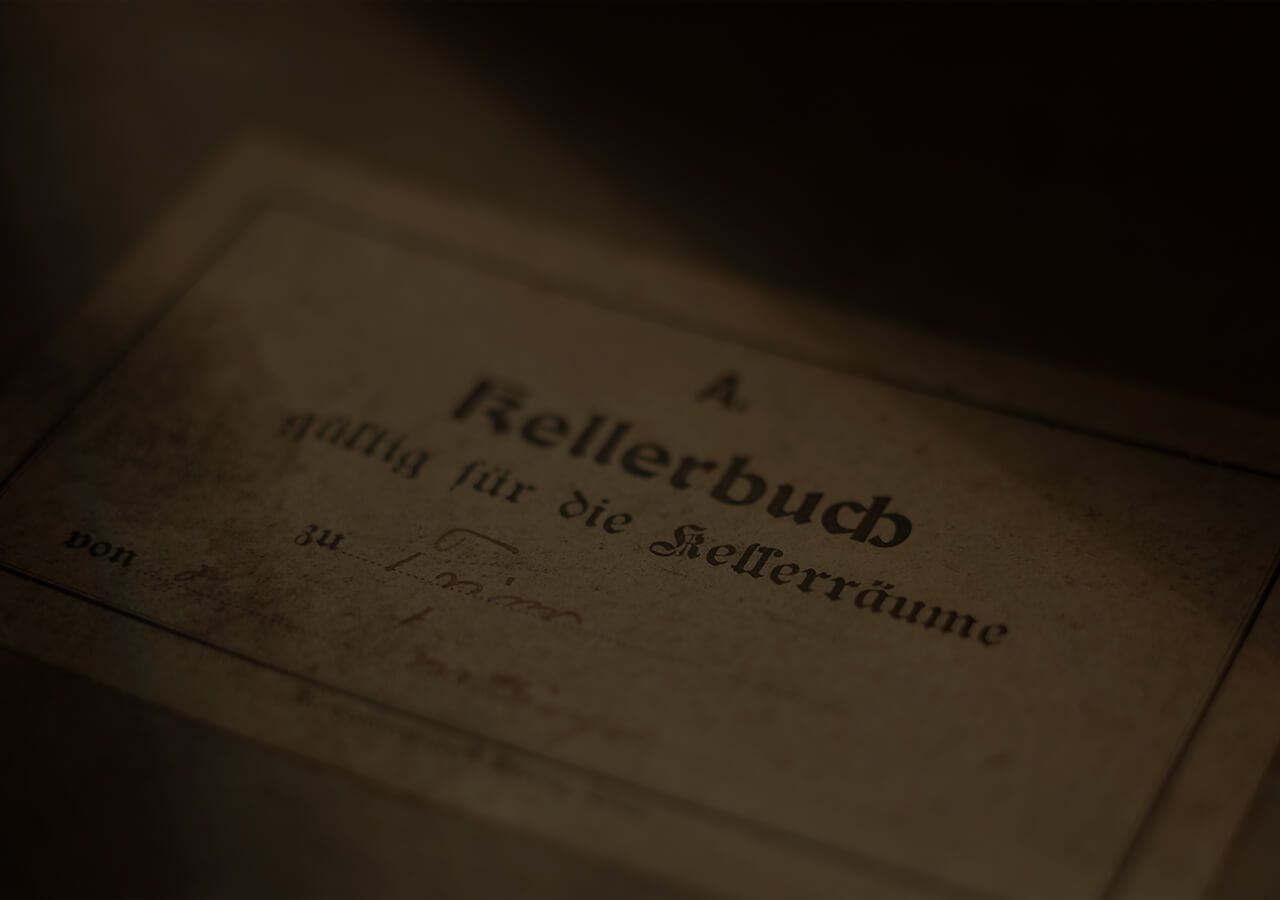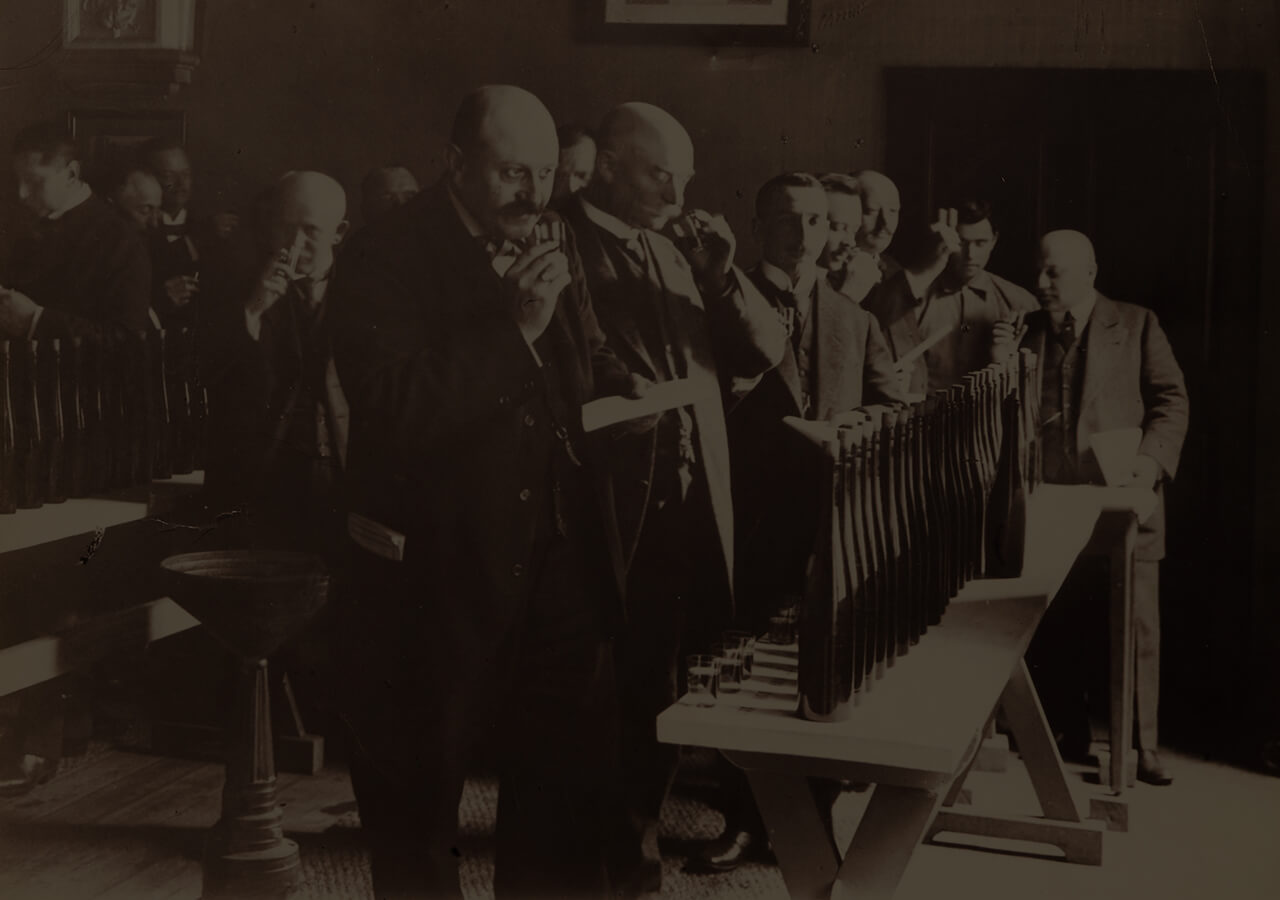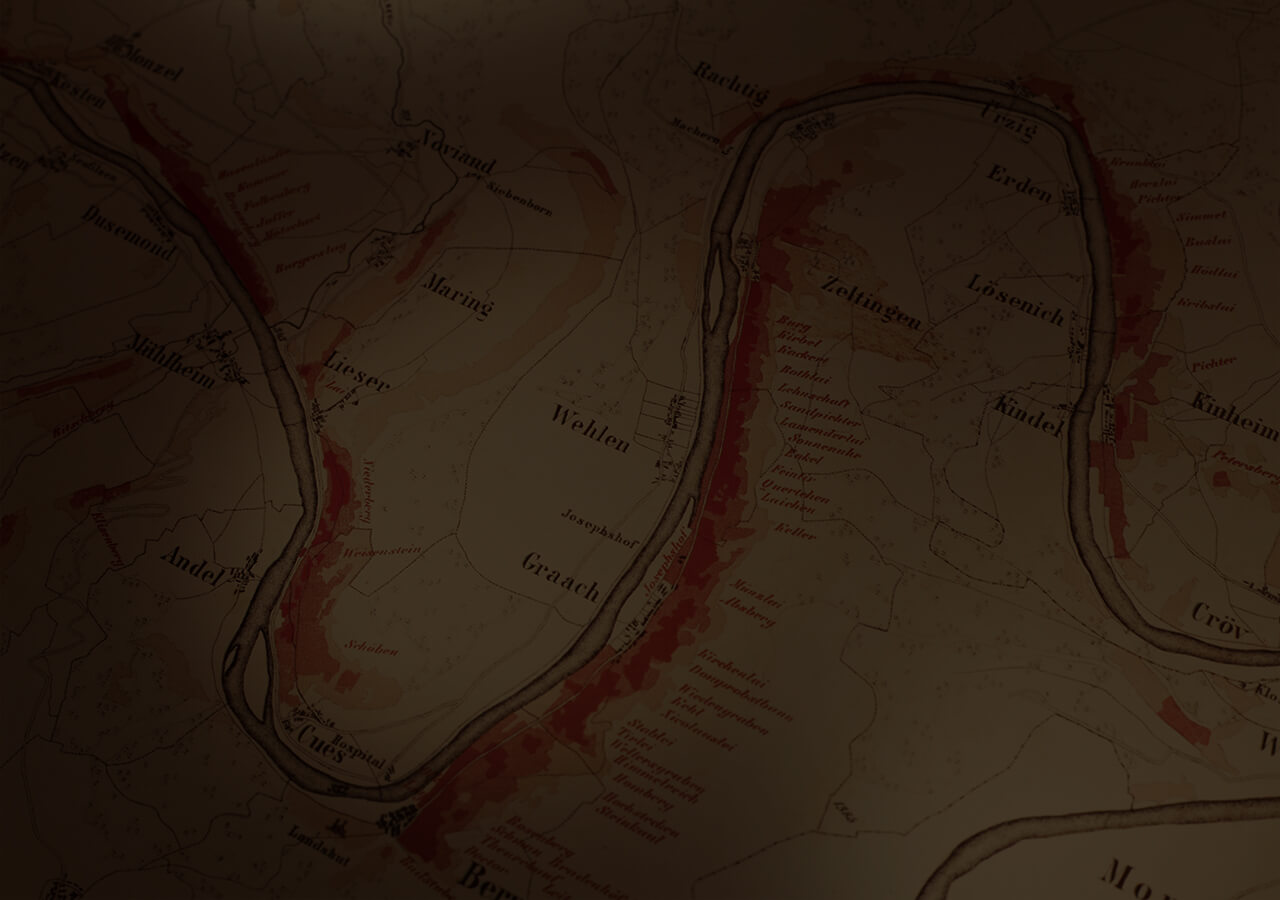Trier, Germany’s oldest city, also has one of the longest winemaking traditions. The former "Friedrich-Wilhelm-Gymnasium" Foundation Winery had existed since as far back as 1561. At that time, the Jesuits founded, as in many places in Europe, a school, as education was of high priority for the order.
To finance this school, the "Friedrich-Wilhelm-Gymnasium" today, a foundation winery was established. The Bishop and the diocese gifted the vineyards for this purpose.
Since 2003, the vineyards of the former "Friedrich-Wilhelm-Gymnasium" Foundation Winery have been a part of the Bischöfliche Weingüter. Not much has actually changed, however. The grape must continues to ferment and mature in a deep, cool cellar, one that has brought forth great wines for centuries, all founded on tradition.

-
1561
On February 3, 1561, the Jesuits decided to do something for education – a date that marks the birth of the "Friedrich-Wilhelm-Gymnasium" school. The Archbishops Johann von der Leyen and Jacob zu Eltz donated several vineyards to financially support the school.
-
1811
Napoleon made it all possible: The school first became an ‘Ecole Centrale’ and ‘Ecole secondaire’ and then, starting in 1811, a ‘Collège’. But it took only four more years for Napoleon to experience his Waterloo, and the ‘Ecole’ and ‘Collège’ became a ‘Gymnasium’ again. This historical episode made no difference to the wine.
-
1835
One of the most famous Germans in history received his high school diploma at this school, the philosopher Karl Marx. Whether he liked the school is not known. But he would certainly have savored its wines.
-
1972
No less a figure than the great British wine critic Hugh Johnson has listed the former "Friedrich-Wilhelm-Gymnasium" Foundation Winery in his ‘World Atlas of Wine’.
-
2003
It was bishops who once donated the vineyards to the school. And it is the "Bischöfliche Weingüter" which have assumed responsibility for the vineyards of the former "Friedrich-Wilhelm-Gymnasium" Foundation Winery.
-
today
You can taste the wines in the Restaurant "Weinwirtschaft Friedrich-Wilhelm" which is situated in the facilities of the former foundation winery. The foundation’s cellars are, now as then, joined with the wine cellars of the "Bischöflichen Weingüter". And it is exactly there where those wines mature which bear the hallmark of excellence "Friedrich-Wilhelm-Gymnasium".
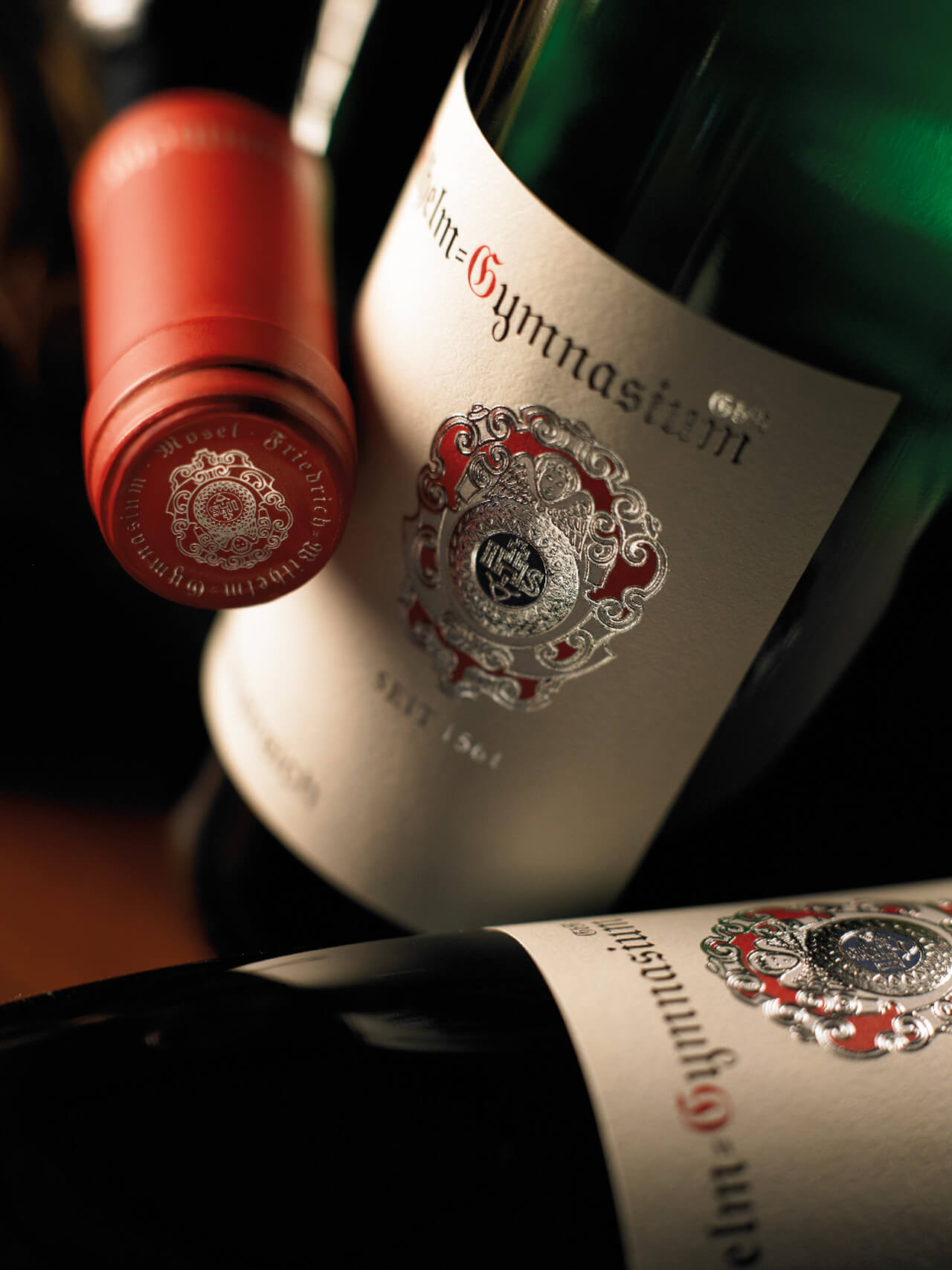
Portfolio
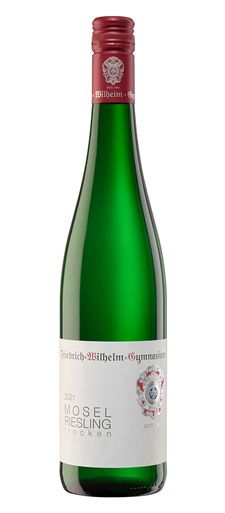
Mosel Riesling
dry
Grape variety: 100 % Riesling
Alcohol: 11,5 % vol.
Our Mosel Riesling dry is characterized by a crystal clear, slightly greenish yellow color and captivates with aromas of citrus fruits, green apple and a slight spiciness. The flavor on the palate is fresh and lively and has a clear and clean finish, with a good balance of fruit and acidity. It is perfect with fish, seafood or light appetizers.
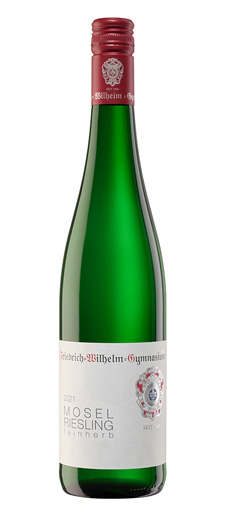
Mosel Riesling
off-dry
Grape variety: 100 % Riesling
Alcohol: 11,0 % vol.
Our Mosel Riesling off-dry exudes aromas of citrus fruits, white peach and a slight spiciness. On the palate it is fresh and balanced, with a harmonic combination of fruit and acidity. The finish is clear and pleasant, with a slight sweetness that provides a round tasting experience. It is an ideal companion to light dishes such as poultry or Asian cuisine.

